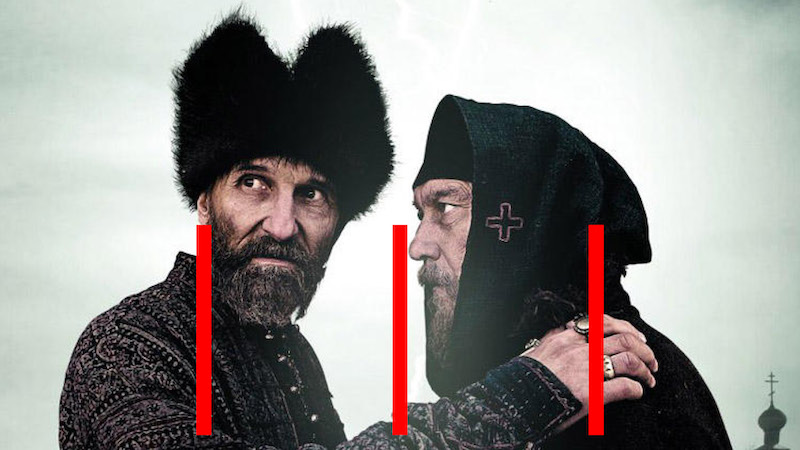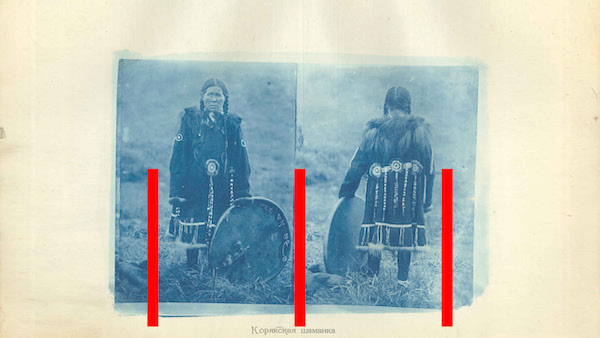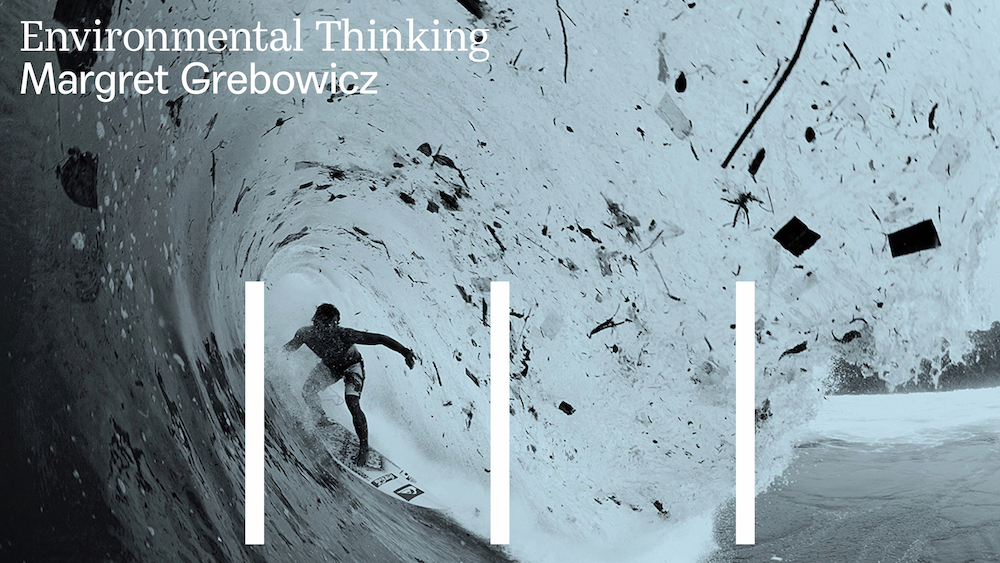School of Advanced Studies, University of Tyumen
Open courses
The School for Advanced Study (SAS) has launched an open course by Jules Rechet "Trauma, Depression and Anxiety in Life and Learning".
The course takes a moderately pessimistic approach, viewing negative aspects of life such as trauma, anxiety, stress, and depression as inevitable and integral parts of human existence.
Within the framework of the course, these concepts will be considered from the perspective of philosophy, psychology, psychoanalysis, psychiatry, biology and neuroscience. Such an interdisciplinary view of the problem will allow one to take a critical position in relation to all the mentioned disciplinary approaches.
Julie Rechet is a SAS Professor, Philosopher, Blogger, Practicing Negative Psychoanalyst and Creative Director of the Summer School 2021, Infinite Future and the Limits of the Human. As part of the yard courses, Julie teaches the course "Writing, thinking, analysis, interpretation" and such electives as "Psychoanalysis and the pursuit of happiness", etc.
The course is conducted in English online from May 11 to June 22, 2021.
Lecture plan:
-
; ; ; ; ; ; ;
- Žižek, S. (2008) 'Descartes and the PostTraumatic Subject'. Filozofski vestnik 29, 2: 9–29;
- Caruth, C. (1991). Unclaimed experience: trauma and the possibility of history. Yale French Studies, (79), 181-192;
- Fenton, B. (2018). The old wounded: Destructive plasticity and intergenerational trauma. Humanities, 7(2);
- Barnett, R. (2007). A will to learn: Being a student in an age of uncertainty. Open University Press, Part 1.2 Being, pp. 27-40;
- Wright, K. (2014). Student wellbeing and the therapeutic turn in education. Australian Educational and Developmental Psychologist, 31(2), 141-152;
- Mawson, C. (2019). Psychoanalysis and Anxiety: From Knowing to Being. Routledge, Part I (Chapter 1. Anxiety, Chapter 2. Heidegger);
- Selye H. (1956). The Stress of Life New York, NY: McGraw-Hill, Part 24: Philosophic Implications, pp. 273-303;
- Vogel S., & Schwabe L. (2016). Learning and memory under stress: Implications for the classroom. NPJ Science of Learning, 29(1), 16011;
- Horwitz, A. V., & Wakefield, J. C. (2007). The loss of sadness: How psychiatry transformed normal sorrow into depressive disorder. Oxford University Press.
Part 1. The Concept of Depression, pp. 3-27.
Is human behavior a product of brain anatomy and physiology? Is it possible to look at psychology as a biological discipline? What causes mental disorders? Why, despite the impressive progress of scientific knowledge in the post-genomic era, the development of treatments for mental illness remains such a challenge? Is a breakthrough possible in this area?
This course will help students to better understand the various manifestations of mental states, to understand themselves and the people around them. Special attention will be paid to depression, fears, psychopathy and criminal propensity.
Ayla Arslan is a molecular neuroscientist. After receiving her Master's degree in biotechnology from the Middle East Technical University (Turkey) in 2001, she received a fellowship from the German Research Society (DFG) and was able to write a doctoral dissertation (Phd) in molecular neuroscience at the University of Heidelberg (Germany). She is a member of the editorial board of the Journal of Integrative Neuroscience, review editor of Frontiers in Neuroscience, and currently, as a guest editor, oversees two special issues of the Journal of Visualized Experiments (JOVE) and the Journal of Integrative Neuroscience. ".
The course is conducted in English online from 6 to 30 April 2021.
Lecture plan:
-
; ; ; ;
- Lecture 5: Neuroplasticity;
- Lecture 6: Mental disorders;
- Lecture 7: Neurobiology of depression;
- Lecture 8: Anxious brain.
- Lecture 1
- Arslan A. (2015). Genes, Brains, And Behavior: Imaging Genetics for Neurpsychiatric Disorders. The Journal of Neurosschiatry and Clinical Neurosciences, 27 (2), 81-92.
- Baum M.L. (2011). The Monoamine Oxidase A (MAOA) GENETIC PREDISPOSITION TO IMPULSIVE VIOLENCE: Is it Relevant to Criminal Trials? NeuroThics 1-20.
- Caspi, A., McClay, J., Moffitt, T. E., Mill, J., Martin, J., Craig, I. W., Taylor, A., & Poulton, R. (2002). Role of Genotype in the Cycle of Violence in Maltreated Children. Science (New York, N.Y.), 297 (5582), 851-854.
- Cooper, R. M. and Zubek, J. P. (1958). "Effects of ENRICHED AND RESTRICTED EARLY ENVIRONMENTS ON THE LEARNING ABILITY OF BRIGHT AND DULL RATS". CANADIAN JOURNAL OF PSYCHOLOGY 12 (3): 159-164.
- Kandel E. R. (1998). A New Intellectual Framework for Psychiatry. The American Journal of Psychiatry, 155 (4), 457-469.
- Pereira, T. D., Shaevitz, J. W., & Murthy, M. (2020). Quantifying Behavior to Understand The Brain. Nature Neuroscience, 23 (12), 1537-1549. https://doi.org/10.1038/s41593-020-00734-z.
- Stephens, G. J., Osborne, L. C., & Bialek, W. (2011). Searching for Simplicity in the Analysis of Neurons and Behavior. Proceedings of the National ACADEMY OF SCIENCES OF THE UNITED STATES OF AMERICA, 108 Suppl 3 (Suppl 3), 15565-15571.
- Trede K. (2007). 150 Years of Freud-Kraepelin Dualism. PsychiaTr Q. 78: 237-240.
- Tryon, R. C. (1940). Genetic Differences in Maze-Learning Ability in Rats. Yearbook of the National Society for Studies in Education, 39, PP. 111-119.
This course explores the origin of seven mortal sins and their importance for the development of the European Society. Each week will be devoted to analyzing a separate defect.
We will look at how the fear of seven mortal sins crossed with changing medieval ideas about political and religious power. And we think about how the ideas about sins continue to influence our philosophical reflections on human nature.
Peter Jones is a historian of culture specializing in the study of the religious, political and intellectual life of medieval Europe (about 500-1500). He was born in the UK, where he received a bachelor's and master's degree at the University of Bristol, and in 2014 Peter defended his doctoral dissertation on history already in New York University (USA). Two years (2014-2016) Peter spent in the Humanitarian Institute of Jackman Toronta University (Canada) as an envoy of the Andrew F. Mallon Foundation. He published many articles on the history of medieval culture in academic journals and collections. Recently, Peter completed work on a book exploring the importance of humor in the political and religious revolutions of the twentieth century.
Lecture Plan in English:
Course Literature.
1. Kenneth Baker, On the Seven Deadly Sins (London: Unicorn, 2018).
2. William C. Jordan, Europe in The High Middle Age (London: Penguin, 2002).
3. Jacques Le Goff, The Medieval Imagination, Translated by Arthur Goldhammer. (Chicago: University of Chicago Press, 1988).
4. The Seven Deadly Sins: From Communities to Individuals, Edited by Richard Newhauser (Leiden: Brill, 2007).
5. IAN. P. Wei, Intellectual Culture In Medieval Paris (Cambridge: Cambridge University Press, 2012).
6. CHRIS WICKHAM, MEDIEVAL EUROPE (New Haven: Yale University Press, 2016).
This open course will allow listeners to get acquainted with theories describing the dynamics of complex societies and learn how to critically apply them to the modern world.
Jay Silverstein is an anthropological archaeologist (PHD, Pennsylvania State University) with great international experience. In SAS, he has been working since 2019, keeping partnerships with the University of Hawaii and the Changfield College, as well as the status of a researcher at National Geographic Society. Previously, Jay was looking for the missing war soldiers of the past. In the process of work, he developed the GIS system, which helped find the remains of 80,000 missing soldiers. Currently, Jay is one of the directors of the archaeological project and a field school in the Greco-Roman city of Tmuit, located in the Neal Delta in Egypt.This well-preserved city gives unique opportunities for analyzing cultural transformations associated with Greek and Roman imperialism, and the evolution of religions from the traditional Egyptian Pantheon to Christianity.
Lecture Plan in English:
- LECTURE 1, APRIL 21: What is Civilization?
- LECTURE 2, APRIL 23: THE EVOLUTION OF COMPLEXITY
- LECTURE 3, APRIL 28: Social Power
- LECTURE 4, APRIL 30: Imperial Organizations
- Lecture 5, May 4: SURVEY OF LOST CIVILIZATIONS
- Lecture 6, May 7: Theories of Collapse
- Lecture 7, May 12: Systemic Stress Dissolution Theory
- Lecture 8, May 14: Regional and Global Collapse
- Lecture 9, May 19: Case Studies of Collapse
- Lecture 10, May 21: Case Studies of Collapse
- Lecture 11, May 26: Case Studies of Collapse
- LECTURE 12, MAY 28: Case Studies of Collapse
- LECTURE 13, JUNE 2: Case Studies of Collapse
- LECTURE 14, JUNE 4: Presentations.
- LECTURE 15, JUNE 9: Presentations.
- LECTURE 16, JUNE 11: Conclusions
Course Literature.
2. Childe, V. G. (1950). The Urban Revolution. Town Planning Review, 21 (1), 3.
3. DENTON, C. (2016). COLLAPSE: Episodes of Imperial Decay. CreateSpace Independent Publishing Platform.
4. DENTON, C. (2020). Fall of Empires: A Brief History of Imperial Collapse. Westholme Publishing.
5. Diamond, J. M. (2011). Collapse: How Societies Choose to Fail or Succeed. Penguin Books.
6. FRIED, M. H. (1976). The Evolution of Political Society: An Essay in Political Anthropology. McGraw-Hill.
7. Luttwak, E. (1984). The Grand Strategy of the First Century A.D. To The Third (3. ED). Johns Hopkins Univ. Press.
8. MANN, M. (1986). The Sources of Social Power. Cambridge University Press.
9. Motyl, A. J. (2001). Imperial Ends: The Decay, Collapse, and Revival of Empires. Columbia University Press.
10. SERVICE, E. R. (1971). PRIMITIVE Social Organization: An Evolutionary Perspective (2D ED). Random House.
11. Tainter, J. A. (2011). The COLLAPSE OF COMPLEX SOCIETIES (23. PRINT). Cambridge Univ. Press.
12. Whittaker, C. R. (2008). Rome and Its Frontiers. ROUTLEDGE.

Gordana Pesakovich is an invited professor SAS. She has a huge global research and teaching experience: for more than 20 years she taught in the United States and awarded the Best Professor Award twice. As a invited professor, she taught in China, Thailand, Serbia, Argentina, Chile, Kyrgyzstan, Mexico, France and the Czech Republic.
What Is International Business? Why it matters to me? What Is the Significance of Culture In International Business? Will Marketing Strategy Change Or Company Can Use the Same Strategy Globally? How Does Global and Regional Economic Cooperation and Integration Shape The International Business?
What is International Monetary System? How Can Changes in Exchange Rates Make Successful Business A Failure? Does Ethics Differ from Country to Country? What Can I Learn That Will Help Me Understand Global Business and Its Impact on the Overall Economy and Life?
"International Business" Class Will Search The Answers to These Questions. Students Will Be Active Participants in the Knowledge Creation Process.
Lecture Plan in English:
- LECTURE 1, NOVEMBER 7 International Business: World IS Flat or in Cage?
- LECTURE 2, NOVEMBER 12 Global Economy in Review: 1987-2019
- LECTURE 3, NOVEMBER 14 International Trade and Foreign Direct Investments
- LECTURE 4, NOVEMBER 19 Culture and Why Does It Matter
- LECTURE 5, NOVEMBER 21 Regional Economic Integrations.
- LECTURE 6, NOVEMBER 26 Europe in crisis or in transition
- LECTURE 7, NOVEMBER 28 INTENTIONAL MONETARY SYSTEM.
- Lecture 8, December 3 Students' Presentations: How to Do Business In Different Countries
- Lecture 9, December 5 Nation Branding: What is it And Why Does It Matter?
- Lecture 10, Deceptber 10 How Can Exchange Rates Destroy Your Business
- Lecture 11, Deceptumber 12 Human Resource Management In The Global Context
- LECTURE 12, DECEMBER 17 Globalization In Transition: The Future of Trade and Value Chains
- Lecture 13, December 19 Where Does Innovation Happen and Why Does It Matter?

Corinne Doria – Professor SAS, a historian who specializes in the social history of medicine and disability.Corinn to work in SAS was a researcher at Columbia University (USA) and taught at the universities Paris 1 Pantheon-Sorbonne (France) and Syans-Po (France).
In 2012, I received a PhD degree with honors on a new story at the University of Paris 1 Pantheon-Sorbonne (France) and Milan University (Italy). She is the author of four books and more than twenty scientific publications. Her Philosophe Entre Deux Révolutions book. Pierre-Paul – Royer-Collard (1763-1845) (Rennes: Pur, 2018) The members of the French Academy noted the name of Henri Germery.
In recent years, in the curriculum, there are an increasing number of medical schools on humanitarian knowledge in the medical sphere. The task of such courses is to equip future medical professionals with skills and competencies that will help them in the future to improve the relations "doctor – patient", give a deeper understanding of delicate ethical issues and provide the opportunity to preserve their professional identity in the situation of an increasing role of technology.
What can we teach humanitarian sciences in health issues, health diseases? How is history, philosophy, literature and art can affect medicine, and how can medicine affect them?
Turning to a wide list of those related to human existence, and to a variety of sources (literature, works of art, cinema and archives), this course will analyze how art and humanitarian sciences make it possible to comprehend health, illness, treatment and health care, complementing ( And not oppresent) their scientific understanding.
Lecture Plan in English:
- LECTURE 1, SEPTEMBER 3
Introduction – Medical Humanities: What Are the And Why Do the Matter - LECTURE 2, SEPTEMBER 5
HEALTH AND ILLNESS: What Are you? – Defining the Normal and the Pathological - LECTURE 3, SEPTEMBER 10
What is a doctor? – Healers, Therapists, and Physicians Through History - LECTURE 4, SEPTEMBER 12
Writing The History of Medicine – From the 'Greatest Benefits to Mankind' Narrative to the 'Patient's View.' - LECTURE 5, SEPTEMBER 17
Hysteria and Madness – Discouurses and Representations of Mental Health - Lecture 6, September 19
IN ATROCIOUS SUFFERING – How Representations and the Experience of Pain Have Changed Over Time? - LECTURE 7, SEPTEMBER 24
Sensing The Past – The Five Senses Through The Philosophical, Historical and Medical Perspective - LECTURE 8, SEPTEMBER 26
Medical Rights and Wrongs -Theorizations, Historicization, and Enforcement of Medical Ethics - LECTURE 9, OCTOBER 1
Medical Narratives – How do We Tell Our Stories About Health and Illness? - LECTURE 10, OCTOBER 3
Mediatizing the Medicine – What Happens When A Medical Issue Becomes Mainstream - LECTURE 11, OCTOBER 8
Exhibiting The Body – Anatomical and Medical Illustrations and The Display of Human Body Parts - LECTURE 12, OCTOBER 10
Art And Medicine – Overlapping Of Medicine and Visual Arts - LECTURE 13, OCTOBER 15
Medicine and Movies – Representation of Physicians and Patients In The 7 Th Art - LECTURE 14, OCTOBER 17
Conclusion – What Future for Humanities in Medicine?

This collectively taught open course consists of a series of lectures on temporary imagination in a popular historical and science fiction film. Using the newly created historical film guards about Russia and Western Europe, as well as modern scientific fiction films, teachers and listeners will turn to the study of the narratives created by them about our past and present. This course is not aimed at opposing true and false or realistic and unrealistic in historical narratives and scenarios of the future; Instead, we propose to consider narrative about the past and the future as a source of knowledge about modern beliefs, fantasies and anxieties. In other words, we are primarily interested in imaginary temporality, giving the opportunity to express an escapherism, cognitive alienation and reassessment of our time.This open course is also available for SAS students as an electric.
Evgeny Grishin Historian Europe and Russia of early New Time, specializing in the study of religion, language practices and materiality.
Peter Jones is a historian of culture specializing in the study of the religious, political and intellectual life of medieval Europe (about 500-1500).
Lecture Plan in English:
- April 18 / Lecture 1: Past, Future, and Temporal Imagination (Grishin / Drum / Jones)
- April 23 / Lecture 2: Film "Viking" / "Viking" (Andrey Kravchuk, 2016, Russia) – Where to Begin the Story? (Grishin)
- APRIL 25 / LECTURE 3: THE PROBLEMS OF ORIGINS, CONTINUITY AND DESTINY IN THE HISTORIKAL NARRATIVES / IMAGINED PASTS (Grishin)
- April 30 / Lecture 4: Film "TSAR" / "Tsar" (Pavel Lungin, 2009, Russia) (Grishin)
- May 2 / Lecture 5: State and People in Past and Present (Grishin)
- May 7 / Lecture 6: Film: "Annihilation" (Alex Garland, 2018, USA) (Drum)
- May 9 / Lecture 7: Dread and Dark Euphoria; Feeling a Historical Moment of Now. Why So Much Body Horror and Dystopia? (drum)
- May 14 / Lecture 8: Film: "Prospect" (Christopher Caldwell and Zeek Earl, 2018, USA)

Erica Wulf is a historian of art, especially interested in modernism and modern, Soviet visual culture, photography, propaganda and intercultural representation. Narvest New York, C 2003 to 2018 She taught at the Faculty of History and Art History at the University of Otago (New Zealand). She received a bachelor's degree in sociology and humanitarian sciences in Princeton University, was an employee for curatorial research on the Program of Independent Studies of the Whitney Museum. After several years of work in Whitney, she entered the graduate school of Michigan University, where he received a PhD degree in art history and a master's degree in rusticism and Eastern European studies.
She received several international training scholarships and participated in the exhibition projects of museums around the world, including such as Reina Sofia in Madrid and Art Institute of Chicago. Now she finishes work on the preface to the history of photography in Russia for Reaktion Press.
Course participants will consider various approaches to the historical study of the photo: its emergence as the technology of displaying historical events, the evolution of photography in the system of relations with other art types, its relationship with other areas of knowledge (such as medicine, anthropology, history, postcolonial theory), its role in development of mass culture and its use as a tool of social control.
As part of the course, the values of photographs in various contexts will be considered: in art, advertising, journalism and propaganda, as well as the social, political and ethical influence of this medium on the formation of modern culture.
Lecture Plan in English:
- Feb. 4: Camera Obscura: The Origins of photography
- Feb. 7: Daguerreotype VS. Calotype.
- Feb. 11: The Photo Art AS A Document
- Feb. 14: Focus On The Body: Portraiture and the Human Countenance
- Feb. 18: Focus On The Body: The Human Sciences (Medicine, Anthropology)
- Feb. 21: "The Other Half": Photography and Social Control
- Feb. 25: Recording The Invisible, Motion, And Color
- Feb 28: 19th Century Virtual Reality: STEEGRAPHS AND MAGIC LANTERNS
- Mar. 4: "You Press The Button and We Do The Rest": Kodak and the Snapshot
- Mar. 7: The Modern Illustrated Press & The Rise Of PhotoJournalism
- Mar. 11: Photography and / As Art
- Mar. 14: The New Vision: From Pictorialism to Modernism
- Mar. 18: Photomontage, Photogram, Manipulation
- Mar. 21: Soveetskoe Foto: Photography and Revolution
- Mar. 25: Photography and Recent Art
- Mar. 28: The Digital Revolution

In 2017, Dzhacom Andreoleti defended his doctoral dissertation on philosophy in Milan State University. In the school year 2015-2016, Dzhacomo worked as a invited researcher at Columbia University (New York). To date, in the center of his research, there are issues such as time metaphysics, time travel and the problem of free freedom.A list of Giacomo's publications can be found here.
The mysterious nature of time has always aroused and will continue to arouse great interest among philosophers. In the everyday sense, the concept of time is quite clear to us, but if we ask ourselves about the nature of time, we fall into complete confusion. Time travelers can help with this: they travel through time and can tell that there is time. Or maybe they will confuse us even more.
This open-ended course introduces students to a range of issues that arise in philosophical debates about time and time travel. On the one hand, the philosophy of time helps to understand whether it is possible in principle to travel in time, and if so, how. On the other hand, by thinking about the topic of time travel, we can better understand the essence of the concept of "time". During the course, we will also discuss issues such as causation, identity over time, the ability to change the past, time loops, fate and free will.
- November 6: Philosophy of time
Introduction to questions of philosophy related to the nature of time. - November 8: Variability and time
The paradox of changes in material objects over time. - November 13: Past, present and future
Three theories of the ontology of time. - November 15: Why are we sure we live in the present?
… and other problems of the ontology of time. - November 20: Time travel: Is time travel possible?
The contradictory and paradoxical nature of the concept of time travel. - November 22: Time loops
What happens when a person, traveling through time from the future, changes the past? - November 27: Paradox of the murdered grandfather
Eliminate the factors that determined your existence by moving in time. - November 29: Time travel and freedom
What time travelers can and cannot do. - December 4th: Time and variability
A thought experiment that disproves the theory that change is an essential element of the concept of time. - December 6th: Timeless Existence
An unusual view of time. - December 11: Branching Worlds
A theory of time based on the fundamental difference between past and future. - December 13: Time travel in branching worlds
Traveling in alternate timelines. - December 18: The Second Dimension of Time
Time and hypertime. - Dec 20: Hypertime Journey
How to kill yourself in youth without killing yourself in the present. - December 25: How to (not) raise funds for a time machine project
Difficulties in implementing your promising project. - December 27: Closing discussion: the nature of time and unresolved paradoxes

Video lectures of the open course "Comprehension of the environment"
Margret Grebowicz is an environmental philosopher who explores exhaustion and desire, the interplay of bodies, places, relationships and meanings at different levels of life.Margret is the author of four books: 'Whale Song' (Bloomsbury Academic P), 'The National Park to Come' (Stanford University P), 'Why Internet Porn Matters' (Stanford University P) and 'Beyond the Cyborg: Adventures with Donna Haraway' ' (with Helen Merrick) (Columbia University P). Originally from Poland, Margret received her PhD from Emory University and taught philosophy in the United States for 20 years. In parallel, she worked as a professional jazz singer in New York for 10 years.
In the news, we constantly hear that we live on a dying planet. For many people, this blocks not only the ability to do something, but simply the ability to think. Sometimes the catastrophic nature of a situation seems too colossal, too connected to every aspect of life, for the average person to comprehend. Sometimes we are told that we need to solve the problem step by step and every action we take matters. None of these positions help us understand the present or imagine the future.
An open course by School of Advanced Studies professor Margaret Grebowicz will present various critical paradigms for understanding the environment and our relationship with it. Instead of describing the environmental crisis as if it were a single issue, the course will illustrate how various environmental issues give rise to cognitive and imaginative paradigms. The aim of the course is not to form a total, complex understanding of the environment, but to study the dynamics of the interaction of these competing frameworks. Should we strive to ease the tension between them? Can their differences between them be productive for thought, action, or both?
Course program in English:
-
03/09: Introductions and beginning thinking What is the Anthropocene? Who are "we"?
09.06: Fantasies of Nature
09.13: Thinking with Grizzly Man
09.27: Thinking about climate change
10.01: Disability, disease, and ecological loss
04/10: Environmental justice
08/10: Indigenous People's Day (US)
10.11: Guest speaker
Oksana Bulgakova is a professor at the Gutenberg University in Mainz, graduated from VGIK in Moscow, and defended her doctoral dissertation at the Humboldt University (1982). She has taught at the Leipzig School of Music and Drama, the Free University of Berlin, Stanford University and the University of California at Berkeley.
Oksana Bulgakova is the curator of the new joint master's program of the Socialist State and the School of Advanced Studies "Digital Culture and Media Production".
The course "History of Cinema" problematizes alternative models for constructing the history of cinematography based on the most interesting films from different countries and eras.
- the history of cinema as a history of changing styles (German expressionism, French impressionism of the 1920s)
- the history of cinema as the history of technology and the development of technology (the first and second sound revolutions, the introduction of new image formats)
- the history of cinema as a history of the development of production and institutional structures (Hollywood studios 1930-1948, German and Soviet cinema of the 1930s; censorship; creation of the canon: archives and festivals)
- the development of film forms in their connection with social history, technology and production structures (classic Hollywood style; French new wave)
- Creating new categories to describe film fengomenons (cisterns and movie stars; Film Noir between genre and style)
- Italian neorealism as a historical, political and intermedial phenomenon; Categories of copyright and copyright style (what they restrained and that left behind new waves in France, Eastern Europe, Germany and Brazil)
- Cinema history as a history of globalization (Chinese cinema phenomenon).
Zakari Reina is PHD in the field of political science at John Hopkins University. The theme of its dissertation study is "a political obligation, or how important the law is: rethinking the tradition of natural law." Zakari worked at the University of Tuuses and taught political theory and cultural studies at the University of John Hopkins.
What are the relationship between right and love? At first glance, they are opposite to each other. The right acts with the help of abstract rules, love arises in intimate and often unexpected circumstances. The right uses the language of mind and appropriateness, love speaks through feelings and affects. The right prohibits, and "Love will all erase," as the Apostle said Paul at the dawn of the Christian tradition.
Stripping from judicial cases and literary and theoretical texts about love, the course poses the question of the foundation of this opposition. We will consider the place of love in the right through the analysis of how the courts and legislators in the USA and Russia were determined and redefined love, and we will consider the role of the Law in Love. Ultimately, we will ask yourself the question in what sense the law and love can be liken to each other?
Louis Vervurt is a philosopher who has previously received physics education. Right from Belgium. He studied physics at the University of Marseille (France) and in the Higher Normal School in Paris (France). Louis received a PhD degree in philosophy at the University of Montreal (2013), in 2014-2015. – Postcards in the field of history and philosophy of science at the University of Quebec in Montreal (Canada). Collaborates with the University of Minkowski as a teacher of philosophy, is the coordinator of the UNESCO Department for renewable energy sources. Consultant freelancer on innovation and creativity.
The course is an introduction to the philosophy of science, concentrated on the last century. At the same time, to understand the broad contexts that have formed the modern concepts of science, we will often contact the main milestones in the history of the philosophy of science from Aristotle and Democritus to such giants that changed basic scientific paradigms as Copernicus, Newton, Darwin, etc.
One of the important issues of the philosophy of science is what distinguishes "science" from other intellectual spheres and activities? Another significant question that needs to be considered: Can philosophy and science interact productively with each other? In this course, we will try to show that in fact science and philosophy go together hand in hand and naturally penetrate one to another.We will study in detail questions such as: What is science? What is pseudoscience? What are the main components of scientific research? Can we describe "genius" in science? Is it possible to have a general theory describing paradigm-shifting creativity? How are scientific hypotheses proven? What levels of certainty (or “truth”) exist in science?
In the second part of the course, we will consider some sociological aspects of science. In addition to Democritus and Aristotle, we will get acquainted with the works of Karl Hempel, Karl Popper, the Vienna Circle community of scientists, Thomas Kuhn, Willard Quine and other contemporary authors. We will often refer to cases from disciplines such as biology, physics, psychology, etc.
To complete the course, you need a general basic knowledge of the school level in the field of science and philosophy and as much curiosity as possible.
Maksim Alyukov is a researcher at the Laboratory of Public Sociology and a PhD candidate in sociology at the Faculty of Political Science and Sociology at the European University at St. Petersburg. He began his career as an engineer and then turned to psychoanalysis. Maxim was the curator of the Sigmund Freud Museum of Dreams, as well as the editor, author and translator of publications in a number of journals related to Lacanian psychoanalysis. He is currently involved in several projects of the Public Sociology Lab on civil society, social movements and wars in the post-Soviet world, and is also working on a dissertation on Russian TV viewers and how news is interpreted in the context of the political crisis in Ukraine. Maxim graduated from St. Petersburg State Maritime Technical University, Eastern European Institute of Psychoanalysis, received a master's degree from the European University in St. Petersburg.
This open course focuses on the history and various research approaches to the analysis of computer games. What is a computer game and how is it different from any other medium, such as text or cinema? What genres of computer games exist, how have they evolved?
In addition to theoretical topics, we will also discuss the main controversies and tensions that arise in public discussions about computer games. What is the connection between games and violence and addiction, sexuality and gender, science and business, education, war and the military-industrial complex? We will discuss current trends in the gaming industry, such as crowdfunding, early access games, counter-gaming, “serious games” and other phenomena that indicate the possibility of games becoming something more than just entertainment.
Peter Jones is a cultural historian specializing in the religious, political, and intellectual life of medieval Europe (c. 500–1500).He was born in the UK, where he received his bachelor's and master's degrees from the University of Bristol, and in 2014 Peter defended his doctoral dissertation in history at New York University (USA). Peter spent two years (2014-2016) at the Jackman Institute for the Humanities at the University of Toronto (Canada) as a postdoc at the Andrew F. Mallon Foundation. He published many articles on the history of medieval culture in academic journals and collections. Peter recently completed a book exploring the importance of humor in the political and religious revolutions of the twentieth century.
The Peter Jones Open Course is a dive into an era whose ideas and institutions have shaped modern Europe. Kingdoms, poets, knights, the first universities – and answers to fundamental questions of human existence, radically different from ours.
Duskin Drum is an artist, actor and interdisciplinary researcher. He holds a PhD from the University of California, Davis in Performance Studies, with a focus on Native American Studies and Science and Technology. He studied theater and theater in an interdisciplinary manner at Evergreen State College, Washington State, USA, where he received a Bachelor of Arts degree. For 15 years, Duskin has been involved in theater and art in Asia, Europe and the Americas.
Duskin Drama Open Course is dedicated to the study of environmental and technological issues based on Japanese anime and manga. Climate change, genetic engineering, robots, cyborgization, mass extinctions, bioethics and the transformation of people into animals and machines.
Anil Aba's open course is devoted to the analysis of modern society through a detailed analysis of economic history, the economic mainstream and alternative models. Slavery, feudalism, capitalism, the efficiency of unregulated markets, global imbalances, world poverty and scenarios for the future.

